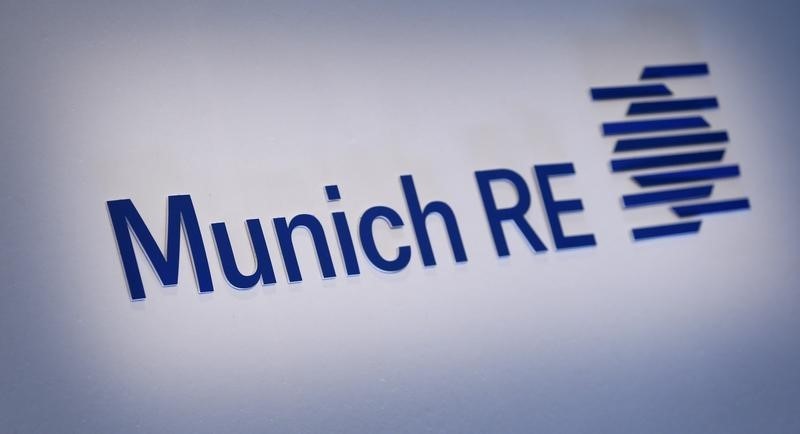Investing.com -- Shares of Munich Reinsurance (ETR:MUVGn) jumped over 5% on Friday after the reinsurer said it aims to achieve a net profit of €6 billion in 2025, citing strong operational performance across its business segments.
The company also projected group insurance revenue of €64 billion by 2025, accompanied by an improved return on investment exceeding 3.0%.
“Our assumption had been that management would opt for a prudently low forecast, one that was lower than consensus (which forecasts €5.9bn). That being said, this is still marginally lower than the €6.1bn that we believe will eventually be achieved,” said analysts at Jefferies in a note.
In a statement, the reinsurance giant detailed its growth expectations for its core reinsurance business, projecting insurance revenue to climb to €42 billion and net profit to reach €5.1 billion in 2025.
The company said that it plans to capitalize on favorable market conditions, maintaining a robust position in the sector.
Munich Re anticipates that its property and casualty reinsurance segment will achieve a combined ratio of 79%, signaling continued profitability.
Meanwhile, Global Specialty Insurance, which will be reported as a separate IFRS segment starting in 2025, is expected to post a combined ratio of 90%.
Together, these factors result in a projected 83% combined ratio for the P&C reinsurance segment under the current classification.
Life and health reinsurance is expected to generate a technical result of €1.7 billion in 2025, underscoring steady performance in this segment.
The ERGO segment, Munich Re’s primary insurance business, is also poised for continued growth. The company forecasts €22 billion in insurance revenue from ERGO in 2025, with a net profit contribution of €0.9 billion.
Operational efficiency remains a focus for ERGO, which anticipates combined ratios of 89% for its German operations and 90% for its international units.
Beginning in 2025, ERGO will combine its German life and health and property-casualty divisions into a single reporting unit, streamlining its financial disclosures.
Despite these strong projections, Munich Re acknowledged potential uncertainties, pointing to geopolitical and macroeconomic risks, as well as possible volatility in currency and capital markets.
The company also noted that its forecasts depend on major losses staying within expected levels and the absence of significant one-off impacts such as tax changes or severe market disruptions.
